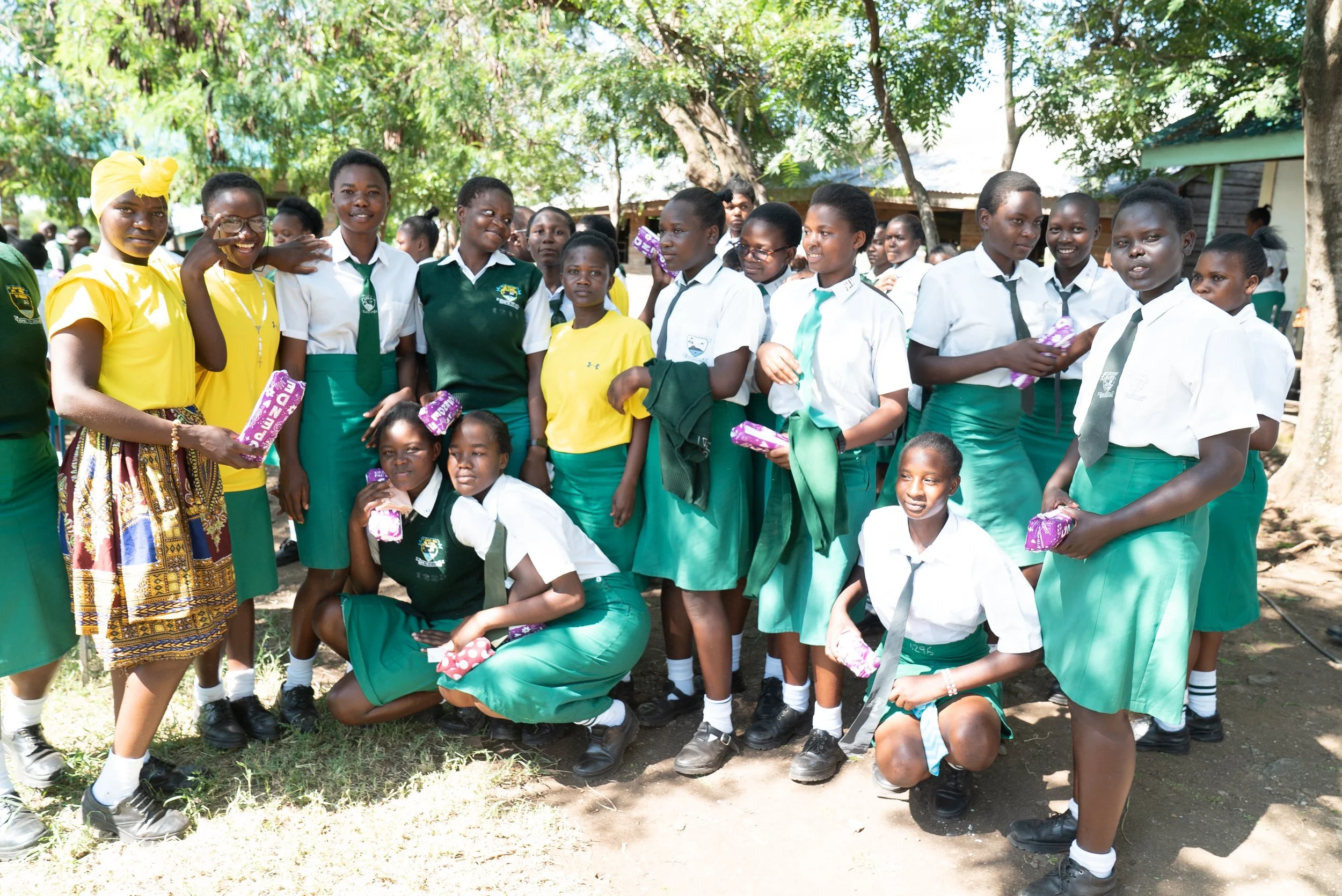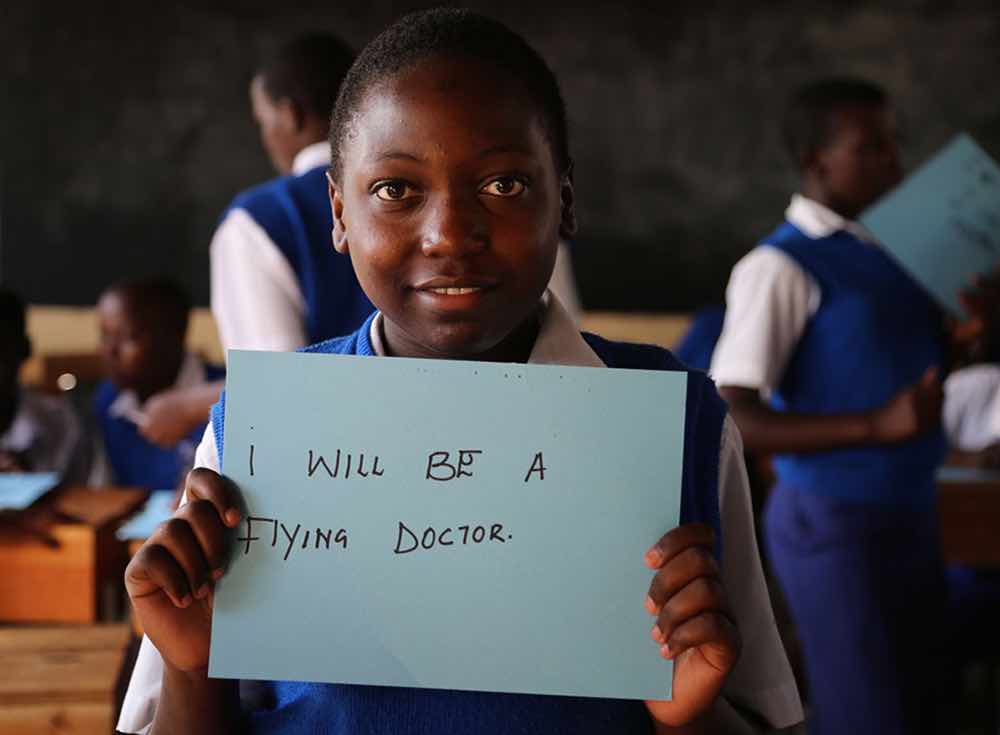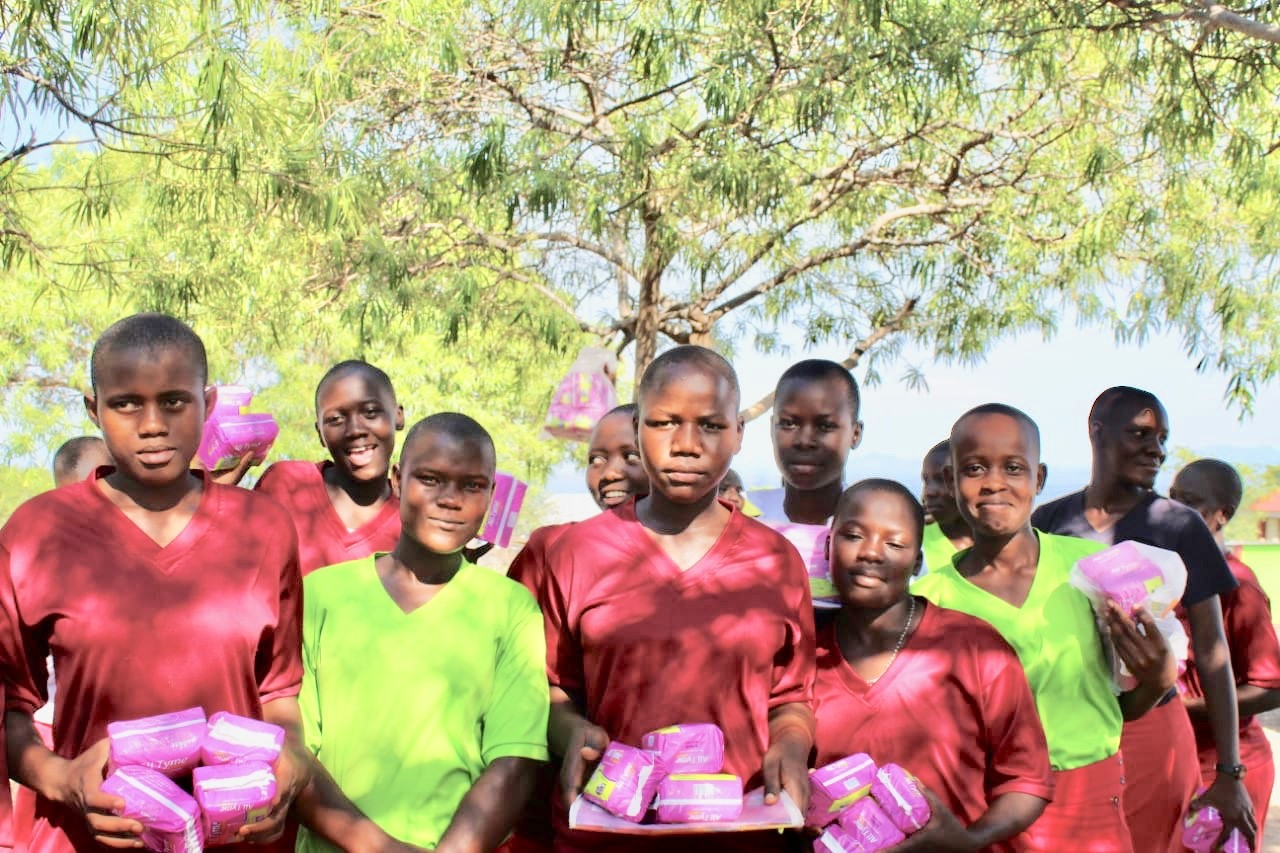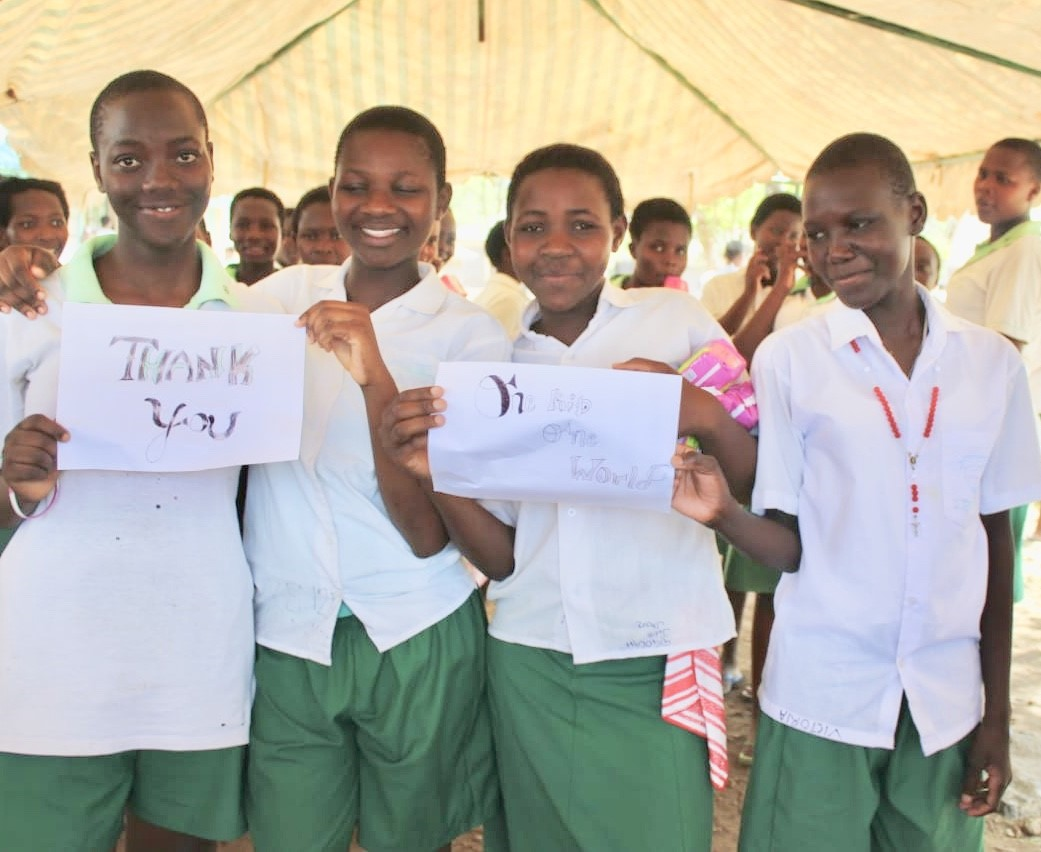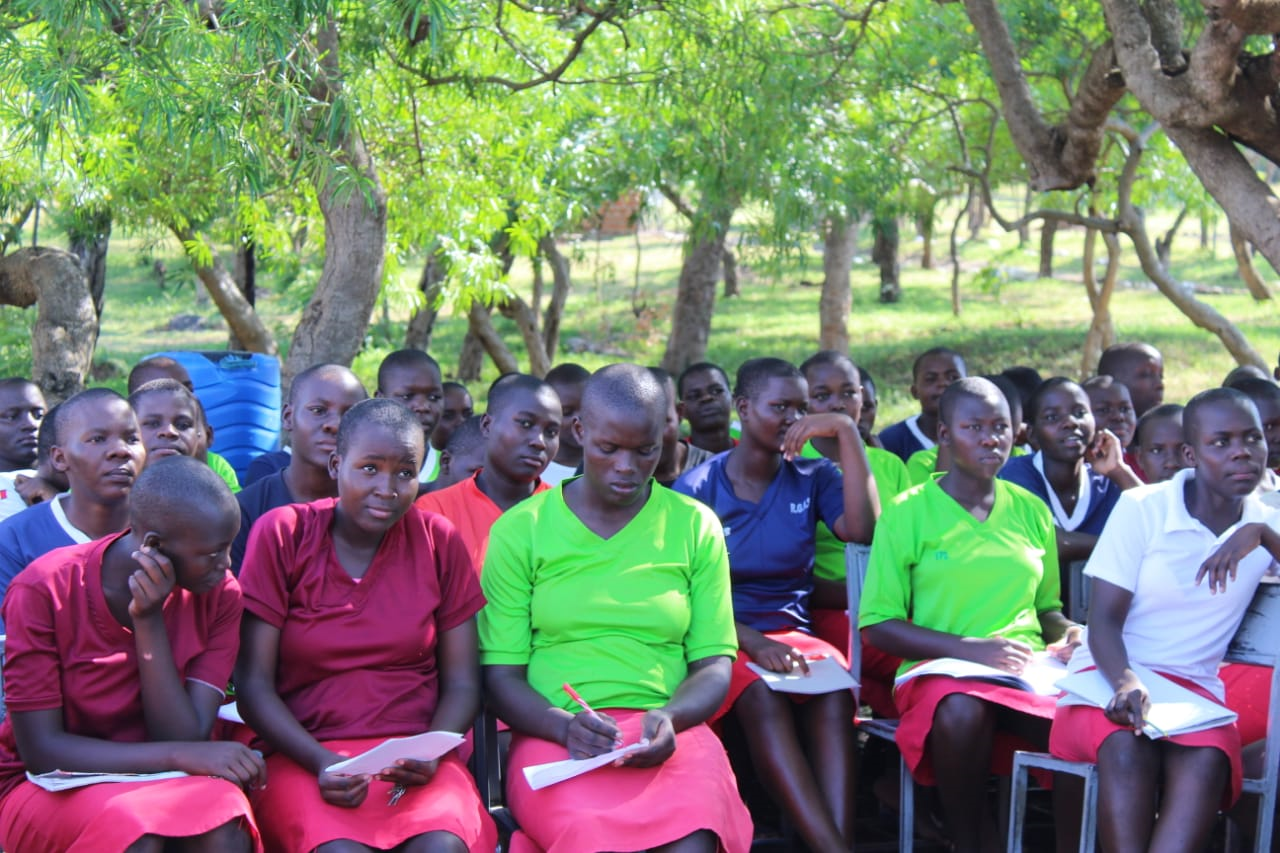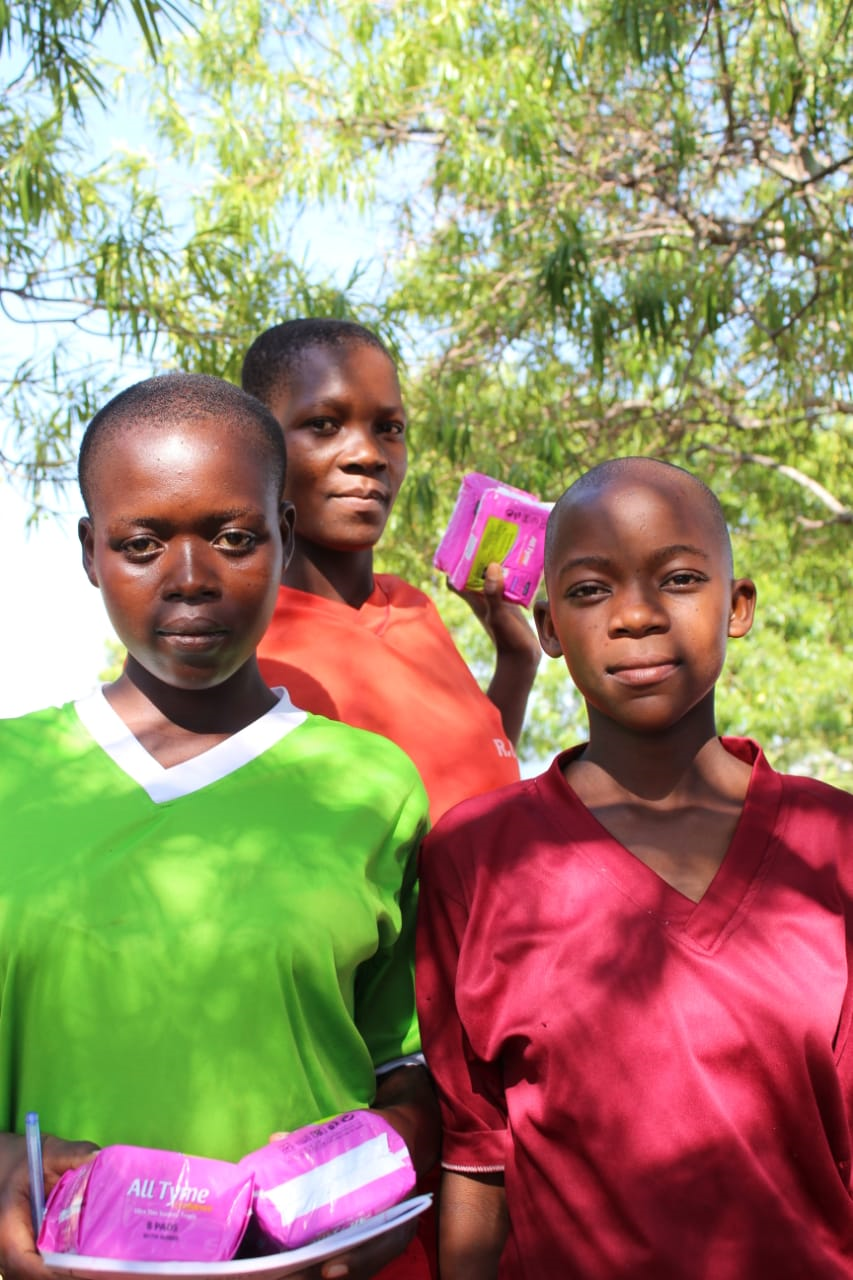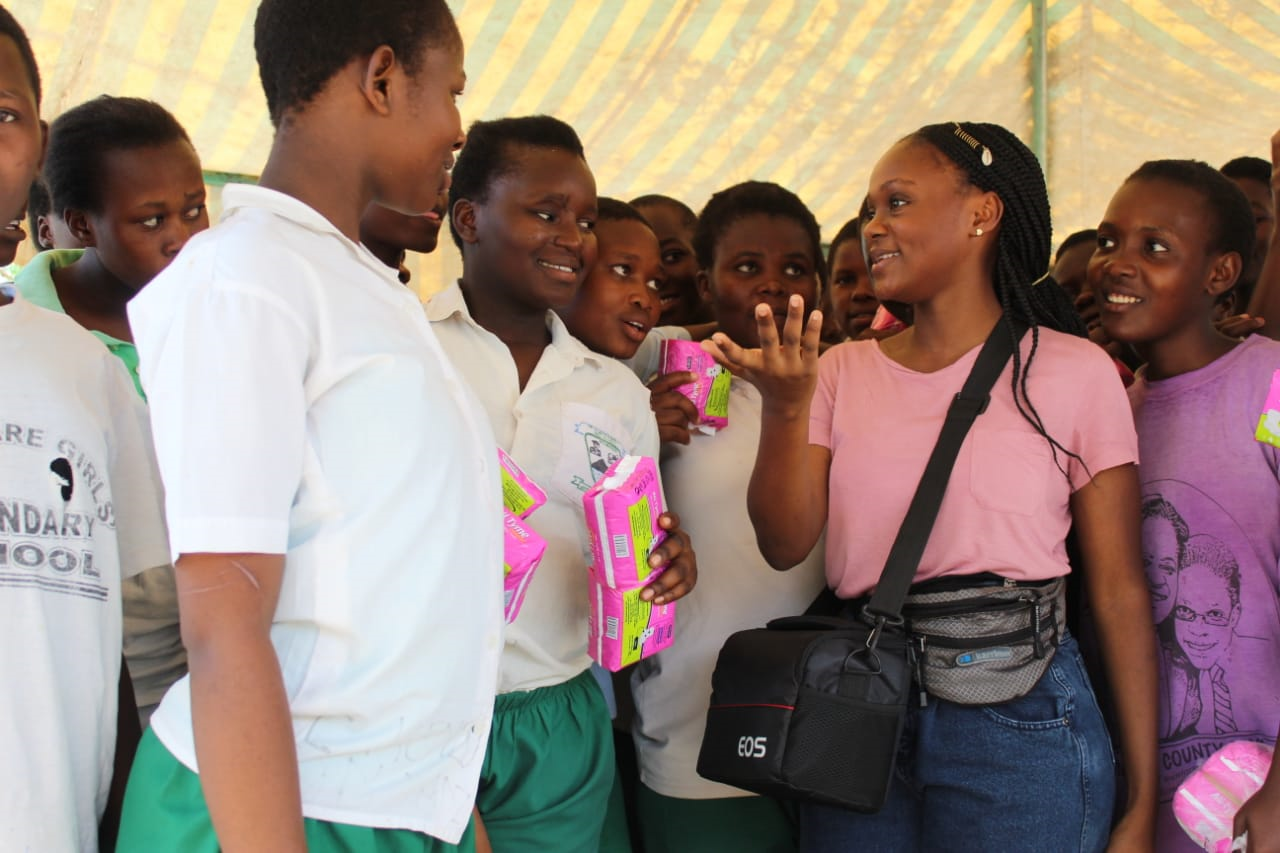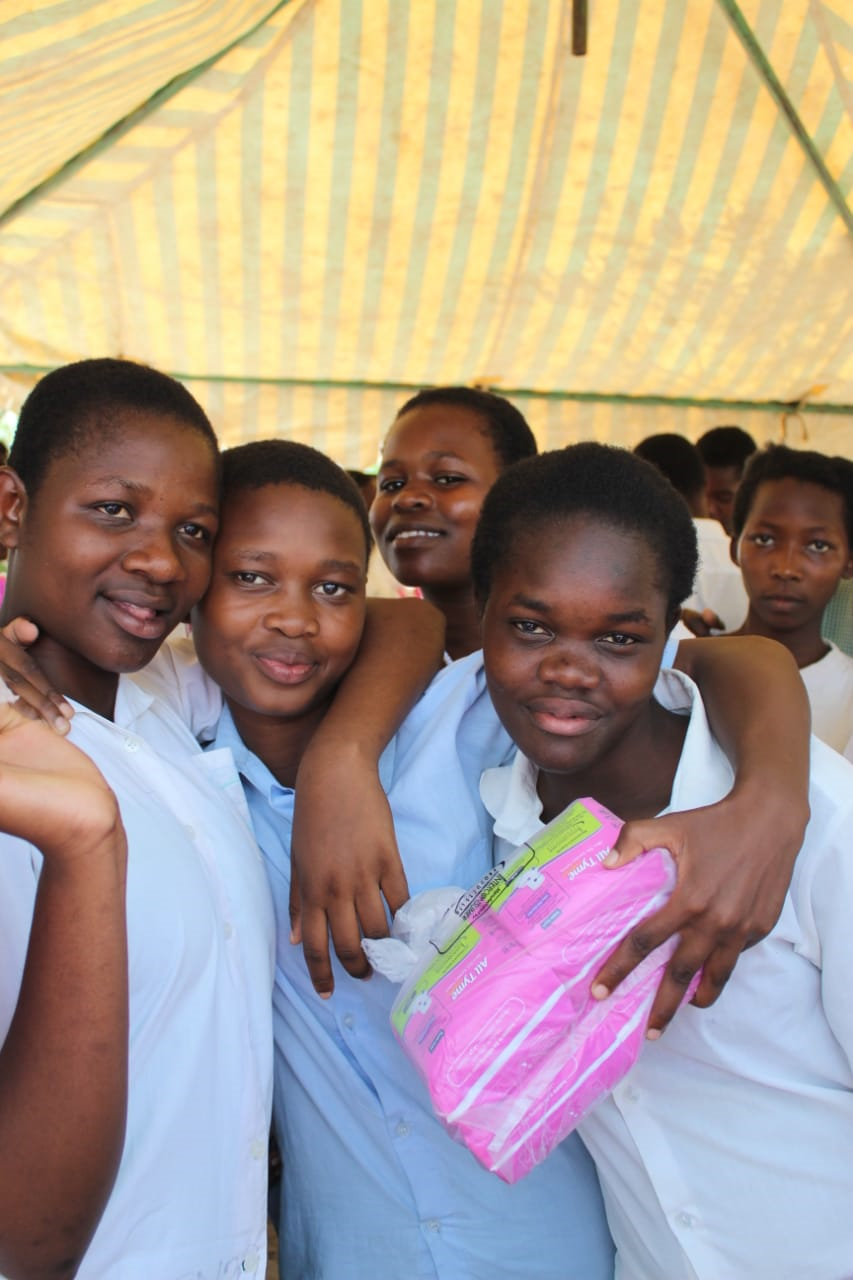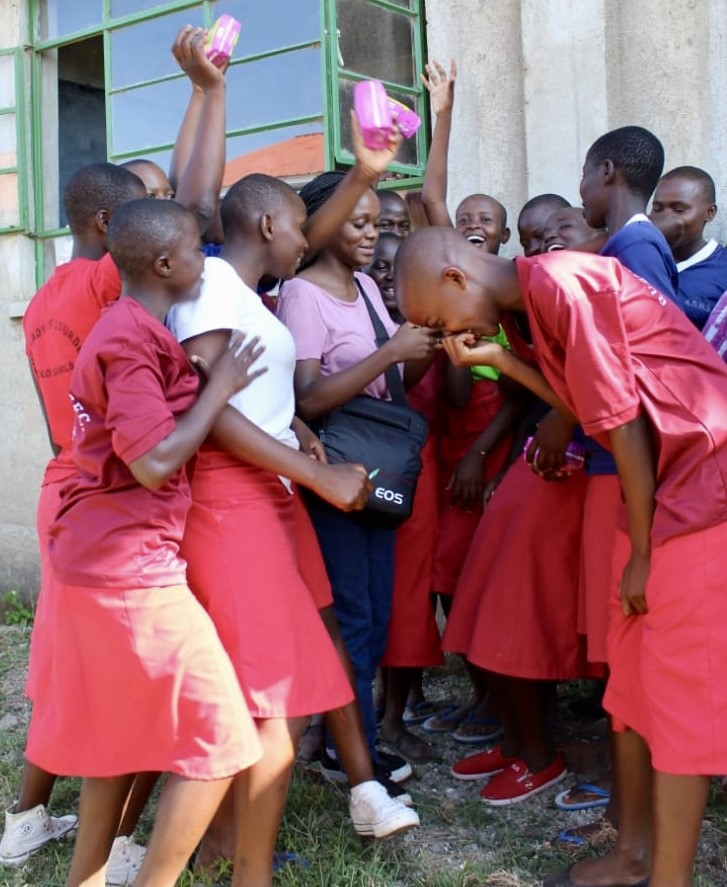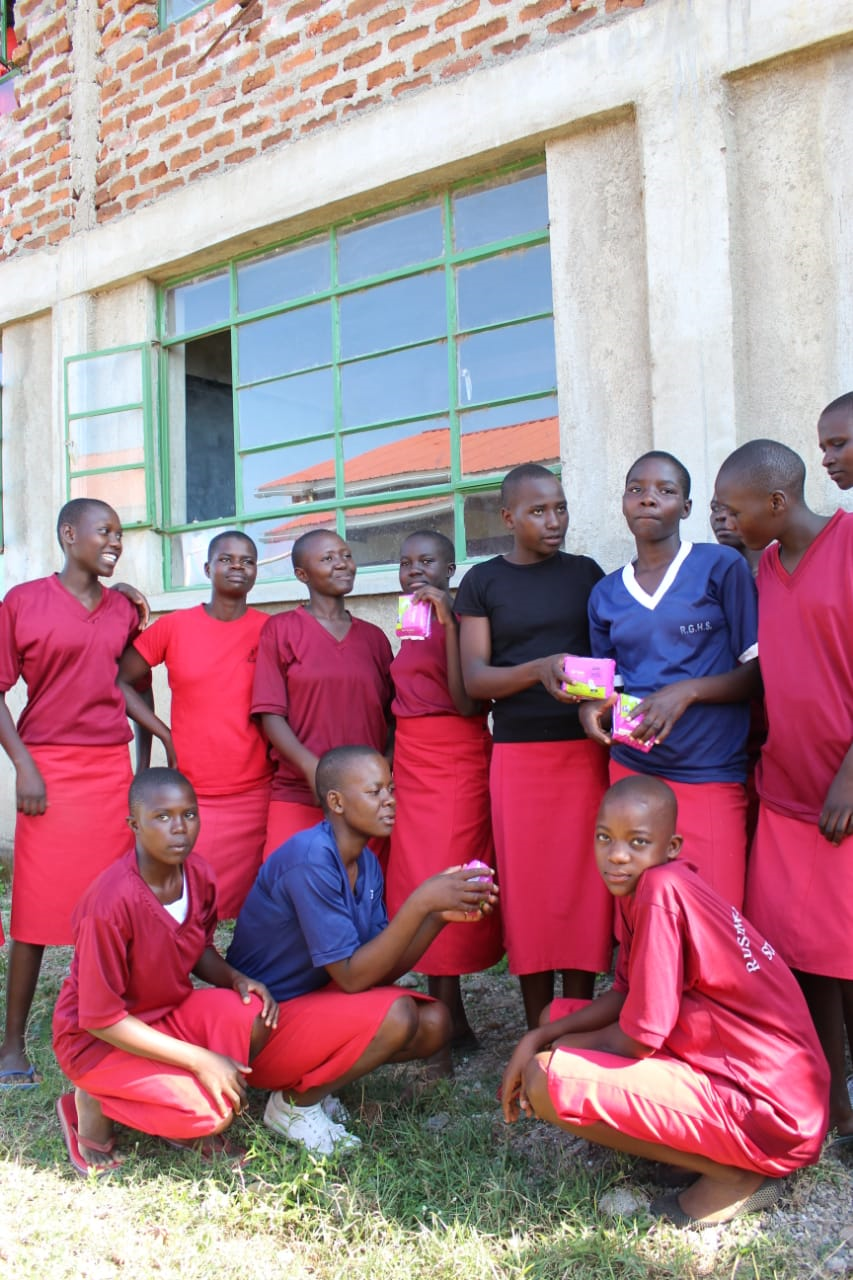OneGirl OnePad
The average female Kenyan student misses up to two months of school a year because they lack access to feminine hygiene products. Period poverty is linked to gender-based violence, unplanned pregnancy, child marriage, and school drop-out.
From the early days of our volunteers bringing duffel bags of feminine hygiene products from the U.S, to our work with Days For Girls and their reusable products to supplying thousands of students in 22 schools with store bought disposable sanitary pads, OneGirl OnePad has been a cornerstone program for OneKid OneWorld.
All the OKOW science labs, classrooms, and libraries wouldn't matter unless our predominantly female student population could regularly attend class in our partner schools. Our goal has always and will continue to do whatever we can to eliminate period poverty induced school absenteeism.
The Future of OneGirl OnePad
With prices rising around the globe and supply chain issues slowing everything down, we've been looking for a more sustainable solution for OneGirl OnePad operations and scalability.
And we've finally found it.
OneKid OneWorld has partnered with the Kibera Pad Company and Polycom Kenya to open a “mini-plant” in Mbita, Kenya. We are using all donated environmentally friendly materials to make feminine hygiene products for over 15,000 students in 22 schools.
About Kibera Pad Co. and Polycom
Kibera Pad Co. and Polycom have been successfully running a “mini-plant” in Kibera since 2019, distributing pads to over 50 schools in the area.
The “mini-plant” consists of five women from Kibera, who were trained and are now paid to work full time to produce good quality, sanitary pads.
These women are the mothers, sisters and grandmothers of the girls.
Our Ask To You
In the first year of our program, we were able to make and distribute over 400,000 pads to 15,000 students at 25 schools! But we are just getting started!
500 for ’25!
We have big plans for 2025. We are expanding our plant, hiring more local women and We want to raise enough to make and distribute over 500,000 pads to 20,000 students!
Remember, it costs only $18 to supply a student with feminine hygiene products for a year!
But we need your help. We need to raise over $200,000 to make this dream happen! Every single dollar counts, please consider donating to us today!
Some questions you might have
Where does the funding for Kibera Pad Co. come from?
Kibera Pad Co. and Polycom’s main funding comes from Australia. The production (labor, raw materials, and equipment) is fully funded by a donor through a grant from the Australian government and through Loving Humanity, which is based out of England.
Do these pads work and do the students use them?
The pads have been very well received in the schools in Kibera for several years. Kibera Pad Co. also has a panel of 30 people (adolescent girls and young women) who are regular users who routinely provide feedback on the product.
OneKid OneWorld also did our own two-month survey with 100 girls in several schools in Mbita using the pads. Here were the results:
98% of the girls found Kibera Pad Co. pads to be good, soft, and long enough.
92% found the pad to be wide enough for personal use and that the adhesive kept the pad stable on the underwear.
96% of the girls reported not having experienced any accidental leakage. 80% of the girls felt more comfortable using Kibera Pad Co. pads over a regular pad.
100% of the girls would use Kibera Pad Co. pads if they were available again.
65% of the girls found the pads better than their regular pad.
99.5% of the girls would recommend the pads to their friends.
In general, the Kibera Pad Co. pad's performance is superior or performed on par with other disposable pad brands regularly used by the girls.
Other Details
The Kibera Pad Co. product is 100% biodegradable.
The production process has received certification from the Kenya Bureau of Standards meaning the product has undergone all tests and has the standard mark of quality.
Our goal is to scale this project up to reach 7,000 to 8,000 students in the Suba District of Kenya

